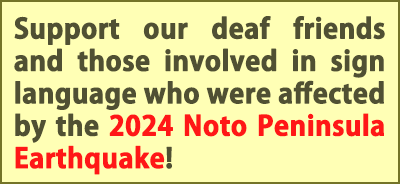On September 9 and 10, 2022, the International Committee of Sports for the Deaf (ICSD), the governing body of international deaf sports and organizer of the Deaflympic Games, had its 49th Congress in Vienna, Austria. The Congress elected Mr. Ádám Kósa for the new President.
To strengthen the relationship between the Japanese Federation of the Deaf (JFD) and the ICSD, as well as to discover and develop human resources who will be responsible for international activities in deaf sports and future ICSD office bearers, we invited Mr. Ádám Kósa to Japan from Sunday, November 13 through Thursday, November 17, 2022.
Taking advantage of his visit to Japan, he also paid courtesy visits to Ms. Yuriko Koike, the Governor of Tokyo, Ms. Keiko Nagaoka, the Minister of Education, Culture, Sports, Science and Technology, and other relevant ministries and agencies in preparation for the 2025 Summer Deaflympics to be held in Tokyo.
Continue reading →
 The UN Committee on the Rights of Persons with Disabilities was held in Geneva, Switzerland from August 11 to August 26, 2025. Attorney Tamon Hiroshi, elected from Japan, attended this meeting as a member of the committee. We, Japanese Federation of the Deaf, are working together with Mr. TAMON to support accessibility for Committee Members. Mr. TAMON reports as follows:
The UN Committee on the Rights of Persons with Disabilities was held in Geneva, Switzerland from August 11 to August 26, 2025. Attorney Tamon Hiroshi, elected from Japan, attended this meeting as a member of the committee. We, Japanese Federation of the Deaf, are working together with Mr. TAMON to support accessibility for Committee Members. Mr. TAMON reports as follows:













